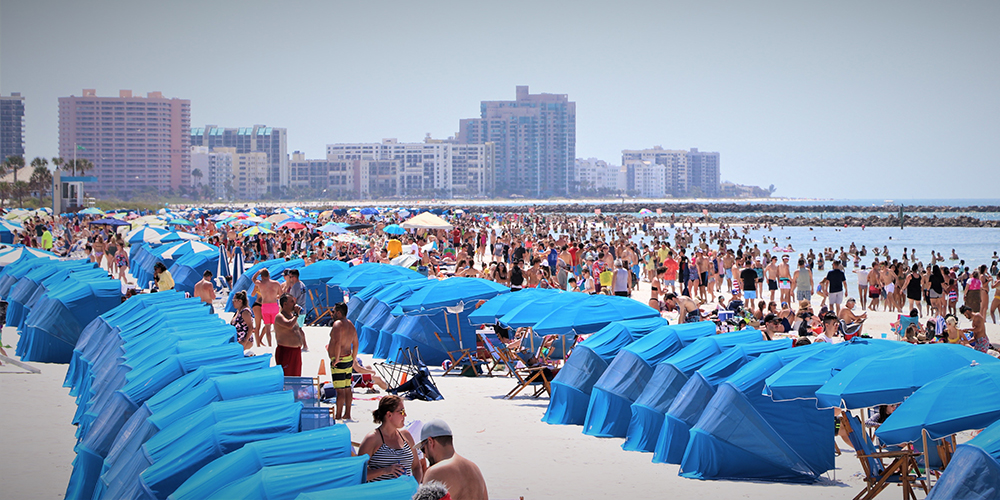While much of the country has been social distancing and staying home, Florida beaches have remained busy with vacationing families and college spring breakers — many of the latter who have now tested positive for coronavirus.
Officials from the University of Tampa confirmed Saturday that five students tested positive after traveling together over spring break, reports NewsWeek. A sixth student who had been traveling internationally was tested on March 16 and also tested positive. That student has not been on campus since late February, according to school officials.
Only one of the five students who were traveling together did not return to campus after the trip. All five self-isolated and none have been hospitalized.
On Sunday, the University of South Florida-St. Petersburg announced a student had tested positive. Four days earlier, an employee had tested positive after coming into direct contact with 13 students, according to The Tampa Bay Times. Also on Sunday, the University of Florida wrote on its website that 10 students and one employee had tested positive.
The news comes a few days after Florida Senator Rick Scott, the state’s former governor, urged Floridians to stay off the beach after pictures and videos of packed shores and busy restaurants began circulating online despite the White House and Centers for Disease Control and Prevention’s (CDC) recommendations to practice social distancing.
“Every part of government has to start telling people: ‘Take some personal responsibility here. Don’t infect other people. Don’t take a chance that you’re going to be the one who is gonna cause your grandparent, or your parents, or another friend from school to get sick,'” Scott said.
On Tuesday, Governor Ron DeSantis announced stricter guidelines to stop the spread of the virus, including closing bars and nightclubs for 30 days and directing restaurants to cut seating capacity by half. By Friday, he ordered restaurants to only offer takeout and delivery.
DeSantis did not close down beaches but said groups of more than 10 people would not be allowed in one place. After refusing to issue a statewide order to close beaches, many local officials took it upon themselves to close their beaches, including Miami, Fort Lauderdale, Naples and Clearwater.
As spring breakers start to return home, health officials are voicing concerns that they will create “super-spreading events” and have chastized Florida authorities for their slowness in closing beaches and nightspots, according to Politico.
“What is happening in Florida with spring break partying-on by students oblivious to the epidemiological implications of their actions is nothing short of tragic,” said Gregg Gonsalves, an epidemiology professor at the Yale School of Public Health. “While many of us have been hunkering down to try to break the chains of infection in our communities, these young people have decided the pleasures of the moment are worth bringing back the coronavirus to their friends and family.”
Hansel Tookes, a public health physician specializing in infectious diseases at the University of Miami’s medical school, said no one knows how much the virus has spread among spring breakers due to a lack of testing.
“If there was testing, they could be isolated in say, a hotel or a place where they could remain alone until they were no longer infectious,” he said. “Younger people have more social interactions. There’s more transmission amongst them. Most people are infectious before they are symptomatic.”
According to researchers at the University of Texas at Austin, the virus also spreads quickly among people who are asymptomatic. An estimated 10% of coronavirus patients are infected by someone who has no symptoms.













